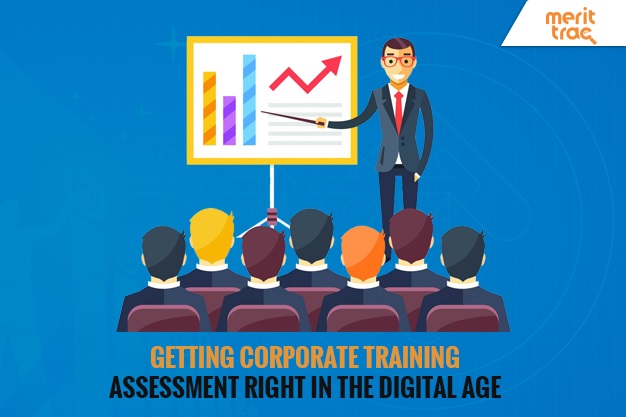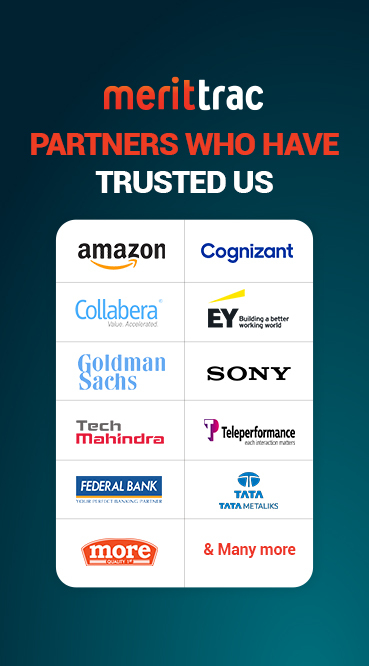
Training Assessment Getting Corporate Training Assessment Right in the Digital Age
Date: 06/03/2018 | Posted by: MeritTrac | Category: Corporate , Training Effectiveness
Corporate Learning and development (L&D) is going through massive disruptions. Interactive learning videos, mobile apps, and flexible platforms are supplementing structured, classroom-based training programs. So, what is driving this disruption?
Organizations are realizing that the key to outperforming their competition in the digital age is to create a continuous learning culture- one that is customized to fit individual needs. While investments in L&D are gaining traction across industries, corporate training assessments continue to remain a blind spot for many.
Here are three ways to ensure effective training assessments that are relevant in today’s digital age:
#1 Reimagine the assessment process
Effective training goes beyond enabling learners to accurately define terms and concepts. It helps them apply conceptual knowledge to solve real-world problems. Assessments should therefore focus on knowledge application – by giving learners different scenarios and problems that resemble the ones they are likely to face on the job. Additionally, assessments should leverage quick and interactive platforms such as mobile devices, as modern learners are able to commit only about 1% of their work time towards L&D. Micro-adaptive assessment techniques such as small, real time practice tests, online quizzes, and simulation and gamification-based assessments are ideal.
Embedding hands-on practice as part of assessments ensures learners are equipped with the knowledge and decision-making skills required in a fast-changing digital world. Take for instance, Domino’s Pizza Maker course. It is a gamified micro-learning module that is designed to train new hires to master the fast food chain’s menu. The game not only accelerates training and onboarding, but also encourages employees to improve past scores.
#2 Provide formative rather than summative assessments
Currently, most corporate training assessments are summative in nature. They evaluate student learning at the end of the training session by benchmarking it against a pre-determined standard. However, to be effective, corporate training assessments must provide formative feedback as opposed to summative. The feedback must be specific, detailed, and ongoing – supported with examples that help learners understand their strengths, weaknesses, and target areas that need to be improved. For instance, if a learner’s answer is right, the assessment should reemphasize the connection between the concept and the context and how it plays out, to strengthen understanding. If the answer is wrong, the assessment should detail which part of it is incorrect, where the learner failed to interpret the problem, what is the right concept and why.
#3 Scoring assessments should be about ‘ability to contribute’
Corporate training assessments should be able to successfully measure a learner’s ability to contribute towards solving real issues. Rather than scoring and assigning specific numbers, the assessment should offer unbiased and constructive feedback on what the learners can and cannot do after learning. Learning analytics systems take into account historical as well as real-time data from learners and instructors, to map learning elements to desired outcomes. Analytical insights also help in setting personalised assessment benchmarks for different learner groups.
Blended assessment models can pay rich dividends
As the digital workplace evolves rapidly, the message for organisations is clear – align corporate assessments with desired on the job performance and broader business objectives. Take for instance, Deloitte’s D.Learn – a blended learning program that combines online learning with face-to-face training, customized to address the specific challenges of each of Deloitte’s clients. Moving to the next level will require a nimble balance between hands-on assessments and digital assessments that provide result-oriented feedback, spurring productivity, innovation and growth – both for the individual and the company.
Source:
- joshbersin.com
- designingdigitally.com
- deloitte.com












 Sales Hotline: USA: +1 646 916 0939 / Others: +91 80619 14700
Sales Hotline: USA: +1 646 916 0939 / Others: +91 80619 14700


